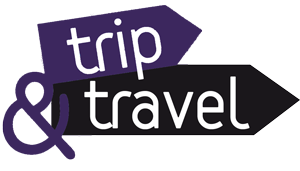The holidays are a time to spend with family and friends, but also a time for packing, driving, and traveling. The average U.S. holiday traveler spends over six hundred dollars on airfare alone, according to AAA. And that’s not including personal expenses like meals and souvenirs. Travel fees can add up, so there are some steps you can take to avoid them.
Booking fees are typically tacked onto the cost of your initial flight purchase. Cancellation fees are applied if your plans change, but there are ways to avoid paying them if that happens. Read on for more details about how to dodge common holiday travel fees.

Early Booking Fees
You might think that booking your upcoming holiday travel months in advance would save you money, but it doesn’t always work this way. Most airlines charge an early booking fee when you purchase a ticket more than 21 days in advance. These can add up to a lot of money per ticket. The same goes for hotel booking.
Hotels offer discounts for booking early, but there are no additional charges if you wait until the last minute. Most hotels will let you cancel at any time without any penalty, so there is no worry about having to pay for your booked hotel room if you need to make changes to your travel plans.
Airport Parking Fees
Parking your car at the airport can be a massive headache, especially if you have a long trip coming up. Some airports charge as much as $30 for parking overnight or for more than three hours, so it’s best to find alternative options.
If in Fort Lauderdale, you have several FLL airport parking options. If you plan to pay with cash at the airport, look for “self-parking” signs and avoid using valet services that can be expensive.
Baggage Fees
Every airline has a different baggage fee policy, so it’s wise to check with your specific carrier before you fly. For instance, some airlines have one-bag fees while others charge for additional bags. Some airlines don’t charge for smaller carry-ons, but most will add a fee if you purchase your ticket from an online travel agency or third-party site.
In general, it is a good idea to check your bag at least 45 minutes before boarding, as this can save you from paying fees. Carry-on baggage should also be kept small and light enough for easy maneuvering through the airport.
Data Costs
Many personal devices offer built-in Wi-Fi capabilities, but if you are not connected to an airplane’s wireless system, then your phone may incur international roaming charges. It’s also important to note that most cellular plans do not cover travel outside of the home country, so make sure you have a data plan before leaving for your holiday.
Data roaming costs can be surprisingly high, so it’s best to use free Wi-Fi whenever you can.
Hidden Holiday Fees
Checking in early can help you avoid long lines when holiday travel time comes, but other hidden charges may come into play. An increasing number of airports have self-service kiosks for checking in that cost more money than the traditional check-in service.
If you want to do it yourself, it’s best to arrive at least three hours before domestic flights and two hours before international flights.
Also, make sure your travel plans are complete before you check in. If your final destination is different from the airport, your flight starts in. Then you may find yourself paying more for baggage fees.
The number and size of hidden travel fees can be overwhelming, but it’s easy to avoid them if you know what to look for ahead of time. The best way to deal with hidden holiday travel fees is to plan as far in advance as possible. For instance, if you’re planning a road trip home for the holidays, then book your hotels and airport parking before you leave. The tips above can save you money on hotels and airport parking fees.














